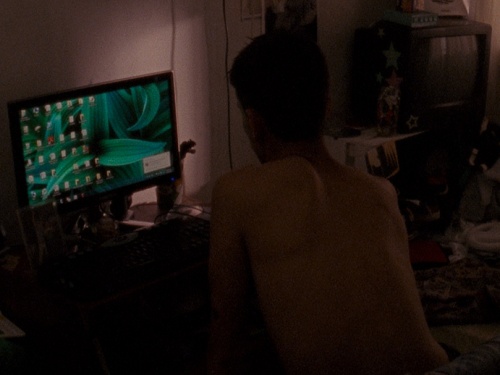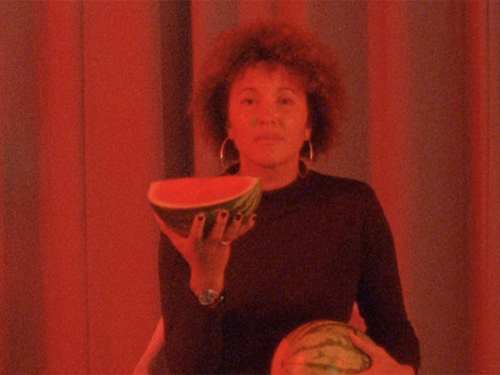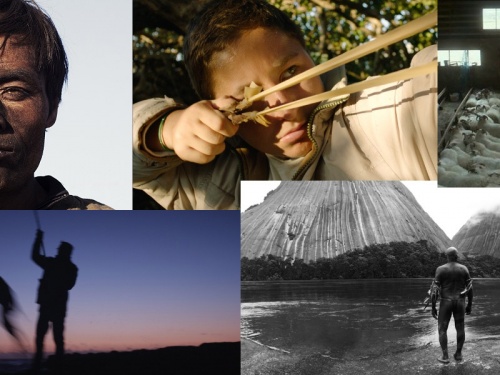Krzysztof Kieślowski: The Cinema of Questioning
ICA's own Film and Cinema Manager Nico Marzano has written an introduction to the work of Krzysztof Kieślowski to accompany the Decalogue 25th Anniversary Retrospective here at the ICA.
Exactly twenty five years ago, in December of 1989, Poland (with Europe soon to follow) welcomed the release of a true masterpiece: Krzysztof Kieślowski's The Decalogue (Dekalog in the original Polish). The ICA, in partnership with the Polish Cultural Institute in London, is celebrating the anniversary of this astonishing ten-film cycle by offering cinema fans the chance to watch one of the most dramatic and fragile artworks ever produced in European cinema.
The Decalogue anniversary season will take place at three venues across London—the ICA, Deptford Cinema and JW3—paying homage to this examination of the ethical underpinnings of the Ten Commandments. Made for Polish television, the original concept involved selecting ten different filmmakers to each direct a 57-minute episode, two of them to be expanded into theatrical features. Kieślowski, collaborating with nine different cinematographers, ended up directing the entire oeuvre, and The Decalogue went on to become a critical sensation on the festival circuit and served as the West's first major exposure to his work. To provide greater artistic context, this retrospective will also feature a selection of Kieślowski shorts, documentaries and other pivotal yet lesser-known films.
A few years ago, the French newspaper Liberation asked various directors why they made films. I answered at the time: 'Because I don't know how to do anything else'. - from Kieślowski on Kieślowski
Krzysztof Kieślowski (1941-1996) was a leading director of documentaries, television work and features in a career spanning three decades. The social and moral themes of contemporary times were the focus of his many significant films, and his uniquely humanist treatment secured his place in the pantheon of great film directors of the 20th century. He was a prominent member of the Polish film generation who defined the so-called "Cinema of Moral Anxiety" - films which tested the limits of socialist film censorship by drawing sharp contrasts between the individual and the state. He shared ideas and themes with a talented group of peers, which included Andrzej Wajda, Krzysztof Zanussi, Agnieszka Holland and many others.
Kieślowski's worked with a wide variety of contributors during the creation of The Decalogue, including eminent composer Zbigniew Preisner. Of particular importance was his collaboration with Krzysztof Piesiewicz. While gathering material for a documentary on a court sentencing during the imposition of martial law in Poland, Kieślowski met Piesiewicz, a working lawyer who provided him with first-hand knowledge of the daily dramas unfolding within the courts. 'I quickly realized that although I knew the atmosphere and knew a little about all this, I didn't know nearly enough about what was going on in the wings, or the real reasons why people behave the way they do, about real conflicts,' Kieślowski explained, continuing that he soon went '...to see Piesiewicz and proposed that [they] write the [Decalogue] script together.' Piesiewicz would remain his writing partner for the remainder of Kieślowski's career.
Driven by an obsession with similarities and paradoxes, Kieślowski took less than a year to film The Decalogue, an astonishingly short amount of time given the consistent quality of dramaturgy. His approach to the project was extremely flexible, shooting the series out of sequence according to the needs of the production and its recurring personnel while taking into account evolving decisions in the editing room. During this period, Kieślowski would often fly to Berlin to give lectures and conduct seminars, flying back to resume filming the series the very next morning.
After The Decalogue established his renown in Europe, he went on to receive an Academy Award nomination and gain international, mainstream fame as a result of his later works, notably The Double Life of Veronique (1991) and the Three Colors trilogy (1993-1994). Yet unlike the majority of Hollywood films with their strategy of 'cause and effect', Kieślowski's works do not seek coherency or transparency. The content, rather, is paramount: his is a cinema of questioning, one that does not want to give any explanation, answer or definite truth, an approach that became his authorial signature. His aesthetic is often critiqued as dry and uncompromising, but his background as a documentary filmmaker in which he strove for objectivity and the part of the invisible observer informs every scene.
Throughout our retrospective at the ICA, we're presenting the rare opportunity to discuss relevant aspects of Kieślowski's filmography with the people who worked and collaborated closely with the Polish filmmaker himself. The insight garnered though discussions with Witold Stok, Jacek Petrycki and Marc Isaacs and Danusia Stok will be invaluable. The participation of Mehelli Modi, Michael Brooke, Rafael Kapelinski and Matilda Mroz represents a fantastic contribution to the understanding of this complex and fascinating filmmaker.
My films are always observations of a man in a situation which forces him to make a choice to define his standpoint. - from Kieślowski on Kieślowski
The Decalogue still resonates today, a study in filmmaking noted for its tight dramatic constructions and emotionally staggering ethical dilemmas guiding characters attempting to live in the modern world according to (or in search of) presupposed ideals. We find characters that represent opposing views, each facing the difficult choices that life requires us to make between reason and religion, faith and secularism. Kieślowski was preoccupied with an ongoing process of looking for answers to these dilemmas throughout his career.
Through his cinematic expressions of destiny and chance, his investigations into human lives are matched perfectly by his rigorous demand for aestheticism and form. Kieślowski's cinema is a process of tender, sensitive and gradual revelation, a cinema that drips a steady dose into your system until you're overwhelmed by its vision of what it means to be human with an uncertain life to live. This is cinema absent of conclusions and answers. At the same time, the sensation when watching his films is that of order and chaos perfectly woven together. ■
Krzysztof Kieślowski: The Decalogue 25th Anniversary Retrospective runs at the ICA from 27 November to 9 December.
This article is posted in: Articles, Film
Tagged with: Krzysztof Kieślowski, Nico Marzano, Polish Cultural Institute, Film, Retrospective, Seaon





